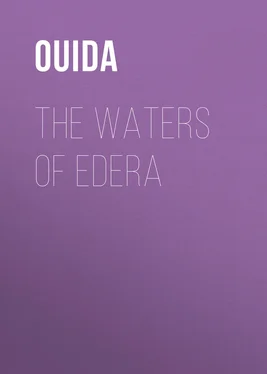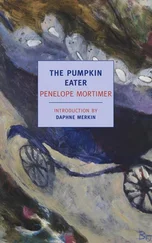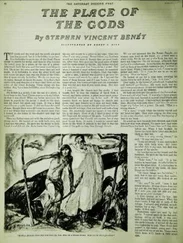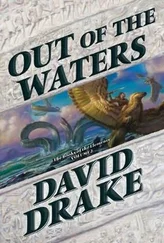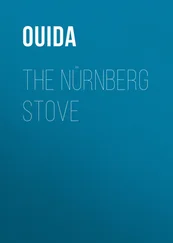Ouida - The Waters of Edera
Здесь есть возможность читать онлайн «Ouida - The Waters of Edera» — ознакомительный отрывок электронной книги совершенно бесплатно, а после прочтения отрывка купить полную версию. В некоторых случаях можно слушать аудио, скачать через торрент в формате fb2 и присутствует краткое содержание. Жанр: foreign_prose, literature_19, foreign_antique, на английском языке. Описание произведения, (предисловие) а так же отзывы посетителей доступны на портале библиотеки ЛибКат.
- Название:The Waters of Edera
- Автор:
- Жанр:
- Год:неизвестен
- ISBN:нет данных
- Рейтинг книги:3 / 5. Голосов: 1
-
Избранное:Добавить в избранное
- Отзывы:
-
Ваша оценка:
- 60
- 1
- 2
- 3
- 4
- 5
The Waters of Edera: краткое содержание, описание и аннотация
Предлагаем к чтению аннотацию, описание, краткое содержание или предисловие (зависит от того, что написал сам автор книги «The Waters of Edera»). Если вы не нашли необходимую информацию о книге — напишите в комментариях, мы постараемся отыскать её.
The Waters of Edera — читать онлайн ознакомительный отрывок
Ниже представлен текст книги, разбитый по страницам. Система сохранения места последней прочитанной страницы, позволяет с удобством читать онлайн бесплатно книгу «The Waters of Edera», без необходимости каждый раз заново искать на чём Вы остановились. Поставьте закладку, и сможете в любой момент перейти на страницу, на которой закончили чтение.
Интервал:
Закладка:
"Mother, whether life for me shall be long or short, here its every hour shall be spent!" he said, as he stood on his own ground and looked through the olive-trees to the river, running swiftly and strong beneath the moon.
"Those are good words, my son," said Clelia Alba, and her hands rested on his bowed head.
He adored both the soil and the water of this place of his birth; no toil upon either seemed to him hard or mean. All which seemed to him to matter much in the life of a man was to be free, and he was so. In that little kingdom of fertile soil and running stream no man could bid him come and go, no law ruled his uprising and his down lying; he had enough for his own wants and the wants of those about him, enough for the needs of the body, and the mind here had not many needs; at the Terra Vergine he was his own master, except so far as he cheerfully deferred to his mother; and all which he put into the earth he could take out of it for his own usage, though indeed the fiscal authorities claimed well nigh one-half, rating his land at far more than its worth. No doubt scientific agriculture might have made it yield more than he did; but he was content to follow the ways of old; he farmed as men did when the Sun-god was the farm slave of Admetus. The hellebore and the violets grew at will in his furrows; the clematis and the ivy climbed his figtrees; the fritillaria and daphne grew in his pastures, and he never disturbed them, or scared the starling and the magpie which fluttered in the wake of his wooden plough. The land was good land, and gave him whatever he wanted; he grudged nothing off it to bird, or beast, or leaf, or flower, or to the hungry wayfarer who chanced to pass by his doors. In remote places the old liberal, frank, open-handed hospitality of an earlier time is still in Italy a practice as well as a tradition.
The house was their own, and the earth gave them their bread, their wine, their vegetables, their oil, hemp, and flax for their linen, and herbs for their soup; of the olive-oil they had more than enough for use, and the surplus was sold once a year in the nearest town, San Beda, and served to meet the fiscal demands. They had rarely any ready money, but no peasant in Italy ever expects, unless by some luck at lotto, to have money in his pocket.
He worked hard; at some seasons extremely hard; he hired labour sometimes, but not often, for to pay for the hiring takes the profit off the land. But he had been used to such work from childhood, and it was never irksome to him; even though he rose in the dark, and rarely went home to supper till the stars were shining. He had no near neighbours except the poor folks in Ruscino. All surrounding him was grass and moor and wood, called communal property, but in reality belonging legally to no one; vast, still, fragrant leagues of uninhabited country stretching away to the blue hills, home of the fox and the hare and the boar, of the hawk and the woodpecker and the bittern.
Through those wilds he loved to wander alone; the sweet stillness of a countryside which was uncontaminated by the residence of men stilling the vague unrest of his youth, and the mountains towering in the light lending to the scene the charm of the unknown.
In days of storm or rain he read with Don Silverio or sang in the church; on fine holy-days he roamed far afield in the lonely heatherlands and woodlands which were watered by the Edera. He carried a gun, for defence if need be, for there were boars and wolves in these solitudes; but he never used it upon bird or beast.
Like St. Francis of Assissi, both he and Don Silverio took more pleasure in the life than in the death of fair winged things.
"We are witness, twice in every year, of that great and inexplicable miracle," the priest said often, "that passage of small, frail, unguided creatures, over seas and continents, through tempests and simoons, and with every man's hand against them, and death waiting to take them upon every shore, by merciless and treacherous tricks, and we think nought of it; we care nought for it; we spread the nets and the gins—that is all. We are unworthy of all which makes the earth beautiful—vilely unworthy!"
One of the causes of his unpopularity in Ruscino was the inexorable persistence with which he broke their gins, lifted their nets, cleared off their birdlime, dispersed their watertraps, and forbade the favourite night poaching by lanterns in the woods. More than once they threatened his life, but he only smiled.
" Faccia pure !" he said, "you will cut a knot which I did not tie, and which I cannot myself undo."
But they held him in too much awe to dare to touch him, and they knew that again and again he went on bread and water himself to give his wine to their sick, or his strip of meat to their old people.
Moreover, they feared Adone.
"If you touch a hair of Don Silverio's head, or the hem of his cassock, I will burn Ruscino," said Adone to one of those who had threatened his friend, "and you will all burn with it, for the river will not help you; the river will turn to oil and make the flames rage tenfold."
The people were afraid as they heard him, for the wrath of the gentle is terrible from its rarity.
"For sure 'tis the dead Tor'alba as speak in him," they said with fright under their breath, for there was a tale told in the district that Adone Alba was descended from the old war-lords.
The veterans of the village and the countryside remembered hearing their fathers say that the family of the Terra Vergine were descended from those great marquises who had reigned for centuries in that Rocca which was now a grim, ivy-covered ruin on the north of the Edera water. But more than this no one could say; no one could tell how the warlike race had become mere tillers of the soil, or how those who had measured out life and death up and down the course of the valley had lost their power and possessions. There were vague traditions of a terrible siege, following on a great battle in the vale; that was all.
IV
The church in which Don Silverio officiated every morning and evening for the benefit of a few old crones, had once been a Latin temple; it had been built from the Corinthian pillars, the marble peristyle, the rounded, open dome, like that of the Pantheon, of a pagan edifice; and to these had been added a Longobardo belfry and chancel; pigeons and doves roosted and nested in it, and within it was cold even in midsummer, and dark always as a vault. It was dedicated to St. Jerome, and was a world too wide for the shrunken band of believers who came to worship in it; there was a high, dark altar said to have been painted by Ribera, and nothing else that spoke in any way of art, except the capitals of its pillars and the Roman mosaics of its floor.
The Longobardo bell-tower was of vast height and strength; within it were various chambers, and these chambers had served through many ages as muniment-rooms. There were innumerable documents of many different epochs, almost all in Latin, a few in Greek. Don Silverio, who was a fine classic as well as a learned archæologist, spent all his lonely and cold winter evenings in the study of these early chronicles, his oil lamp burning pale and low, his little white dog lying on his knees.
These manuscripts gave him great trouble, and were in many parts almost unintelligible, in others almost effaced by damp, in others again gnawed by rats and mice. But he was interested in his labours and in his subject, and after several years of work on them, he was able to make out a consecutive history of the Valdedera, and he was satisfied that the peasant of the Terra Vergine had been directly descended from the feudal-lords of Ruscino. That pittance of land by the waterside under the shadow of the ruined citadel was all which remained of the great fief of the youth in whose veins ran the blood of men who had given princes, and popes, and cardinals, and captains of condottieri, and patrons of art, and conquerors or revolted provinces, to the Italy of old from the beginning of the thirteenth century to the end of the sixteenth. For three hundred years the Tor'alba had been lords there, owning all their eyes could reach from mountain to sea; then after long siege the walled town and their adjacent stronghold had fallen into the hands of hereditary foes whose forces had been united against them. Fire and steel had done their worst, and only a month-old child had escaped from the burning Rocca, being saved in a boat laden with reeds at anchor in the river, and hidden by a faithful vassal. The child had grown to manhood and had lived to old age, leading a peasant's life on the banks of the Edera; the name had been mutilated in common usage amongst those who spoke only the dialect of the province, and for three more centuries father and son had succeeded each other, working for their daily bread where their ancestors had defied Borgia and Della Rovere, and Feltrio, and Malatesta; the gaunt dark shade of the dismantled citadel lying athwart their fields between them and the setting sun.
Читать дальшеИнтервал:
Закладка:
Похожие книги на «The Waters of Edera»
Представляем Вашему вниманию похожие книги на «The Waters of Edera» списком для выбора. Мы отобрали схожую по названию и смыслу литературу в надежде предоставить читателям больше вариантов отыскать новые, интересные, ещё непрочитанные произведения.
Обсуждение, отзывы о книге «The Waters of Edera» и просто собственные мнения читателей. Оставьте ваши комментарии, напишите, что Вы думаете о произведении, его смысле или главных героях. Укажите что конкретно понравилось, а что нет, и почему Вы так считаете.
